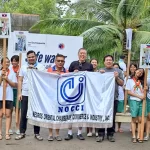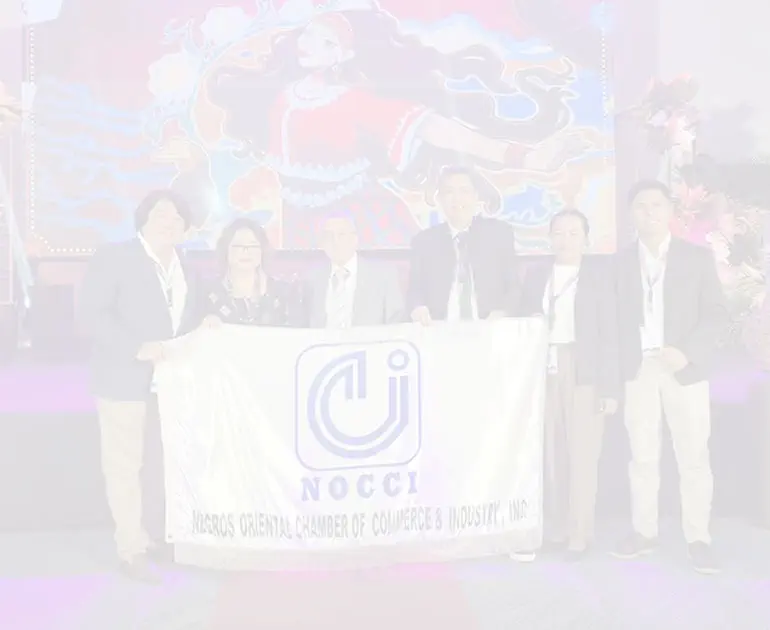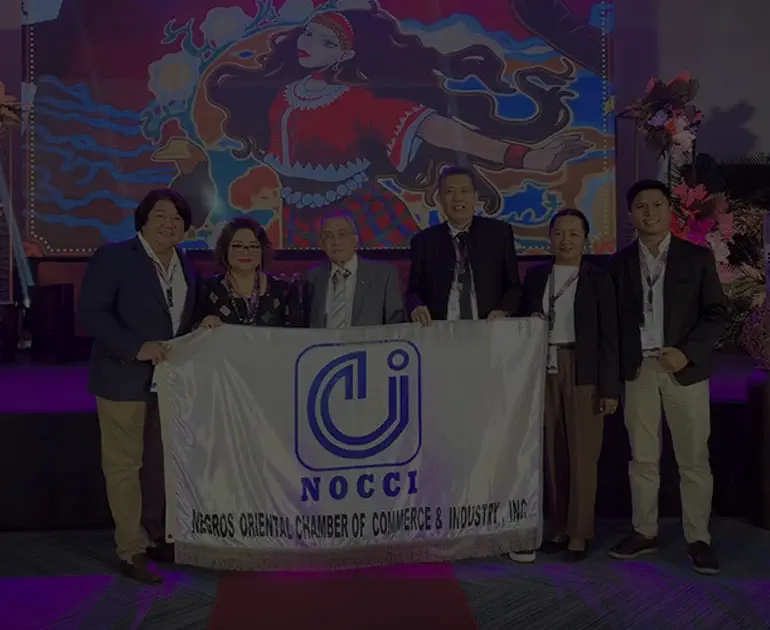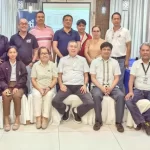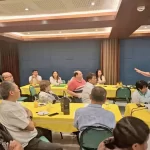Negros Oriental Chamber of Commerce and Industry (NOCCI), officers led by President Edward Du, actively participated in the 3-day Negros Provincial Strategic Planning Workshop, aimed at revising the Provincial Development Physical Framework Plan (PDPFP) for endorsement to the Negros Island Regional Development Council (RDC) after elections. The planning workshop brought together key stakeholders, including 25 Local Government Units (LGUs), municipal and city administrators, planners, engineers, agriculturists, and health officers, who contributed their valuable inputs and recommendations to the revised PDPFP.
NOCCI Engages in Strategic Workshop to Guide Negros Oriental’s Future
The Negros Oriental Chamber of Commerce and Industry (NOCCI), under the leadership of President Edward Du, took a proactive role in the recently concluded three-day Negros Provincial Strategic Planning Workshop. This high-level event focused on revising the Provincial Development Physical Framework Plan (PDPFP), a comprehensive blueprint for the province’s growth and sustainability, in preparation for endorsement to the Negros Island Regional Development Council (RDC) following the national elections.
Held in collaboration with 25 Local Government Units (LGUs), the workshop served as a crucial venue for alignment and integration of sectoral plans across the province. Attended by municipal and city administrators, urban planners, engineers, agriculturists, and health officers, the workshop emphasized collaborative governance, evidence-based planning, and private sector engagement as key components for driving future development.
NOCCI’s involvement signified the increasing recognition of private enterprise as a central stakeholder in shaping long-term regional policies. President Du, who has been an advocate for public-private partnerships in the region, highlighted the importance of business sector representation in the strategic planning process. “The private sector brings practical insight into the feasibility of proposed strategies and ensures that economic goals remain grounded in reality,” Du noted during the plenary.

The PDPFP, a critical document for the province’s socio-economic roadmap, outlines infrastructure, environmental, health, and agricultural priorities through a 10-year lens. The updated plan incorporates emerging challenges such as climate resilience, digital infrastructure expansion, inclusive economic zones, and sustainable tourism—sectors identified as drivers of growth and recovery in the post-pandemic period.
In particular, the workshop addressed the need for inter-LGU coordination in areas such as waste management, transport systems, food security, and health services. LGU planners and sectoral heads provided key data and projections that will shape zoning decisions, investment prioritization, and public spending in the upcoming fiscal cycles.
NOCCI officers provided business-centric feedback to proposed infrastructure projects, emphasizing the importance of logistical connectivity and investment incentives for micro, small, and medium enterprises (MSMEs). The chamber also advocated for increased access to digital platforms and broadband services to facilitate e-commerce growth and remote working opportunities—factors deemed essential for modernizing the province’s economic structure.
The inclusion of health officers in the planning highlighted the integration of public health concerns into local development strategies, particularly in the wake of lessons learned from the COVID-19 pandemic. Health resilience, disease surveillance, and facility upgrades were proposed as core components of the provincial plan.
Meanwhile, agriculturists stressed the need for sustainable land use planning and climate-smart agricultural techniques to ensure food security and reduce vulnerability to climate disruptions. Engineers and technical consultants contributed to the feasibility and compliance aspects of proposed physical infrastructure, ensuring alignment with national standards and environmental safeguards.
The revised PDPFP will now undergo further technical validation and stakeholder consultations before its final submission to the Regional Development Council for endorsement. Once approved, it will serve as the guiding framework for harmonizing future investments, ensuring policy continuity, and fostering integrated rural-urban linkages within Negros Oriental.
President Du expressed confidence in the collaborative process, stating, “This workshop reinforces our collective responsibility to future-proof the province. With a strong alliance between government, business, and community leaders, we can ensure that Negros Oriental develops in a balanced, sustainable, and inclusive manner.”
As the province positions itself as a regional growth hub in the Visayas, the strategic role played by institutions such as NOCCI will continue to be critical. Their advocacy for enterprise-driven solutions, innovation, and resilient infrastructure underscores the chamber’s commitment to contributing to provincial transformation.
The active participation of diverse stakeholders in the PDPFP revision marks a significant step toward comprehensive planning. With the updated framework in place, Negros Oriental is poised to attract investments, improve public services, and build a more adaptive governance system tailored for the demands of a dynamic future.



